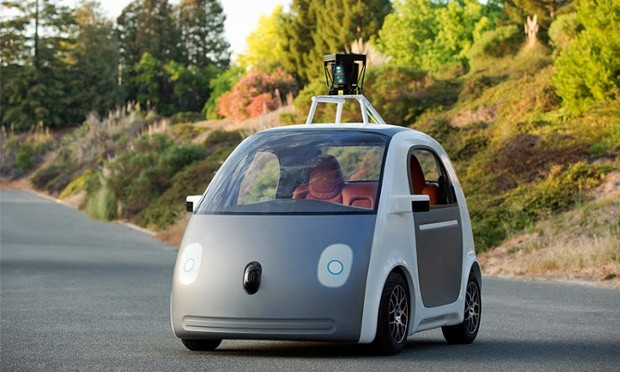Google Unveils Self-Built Driverless Car Without Steering Wheel, Brakes or Accelerator

Google has designed and built its own driverless vehicle, which will feature no steering wheel, accelerator or brakes and rely entirely on Google's sensors and software to drive the car safely.
Building its own driverless car from the ground up marks a major departure for Google who had previously modified vehicles made by other car manufacturers for its autonomous vehicle project.
"The project is about changing the world for people who are not well-served by transportation today," said Google co-founder Sergey Brin. "There's not great public transportation in many public places in the United States."
The company had previously relied on adapting existing vehicles to suit its driverless vision that aims to improve on many of the pitfalls of traditional driving, including disability restrictions, traffic and safety.
Google said that it expected to see its two-seater self-drive cars on the road within a year, beginning with a fleet of around 100 cars which will be built in Detroit and deployed on the roads of California.
On its official blog, Google said its drivers would begin testing prototype vehicles which still have manual controls this summer and "if all goes well, we'd like to run a small pilot program here in California in the next couple of years."

25mph top speed
The vehicles will feature a stop-go button but will do away with many design features commonly found on a car, including mirrors, pedals and a steering wheel. Initially, the speed will be capped at 25 miles per hour for safety reasons.
Google opted for a "friendly" design, aiming to establish the idea in people's minds that self-driving technology is safe and non-threatening.
Chris Urmson, director of Google's self-driving car project, said that believed the vehicle could improve people's lives by transforming mobility.
"We're really excited about this vehicle. It's something that will allow us to really push the capabilities of self-driving technology and understand the limitations."
© Copyright IBTimes 2025. All rights reserved.






















